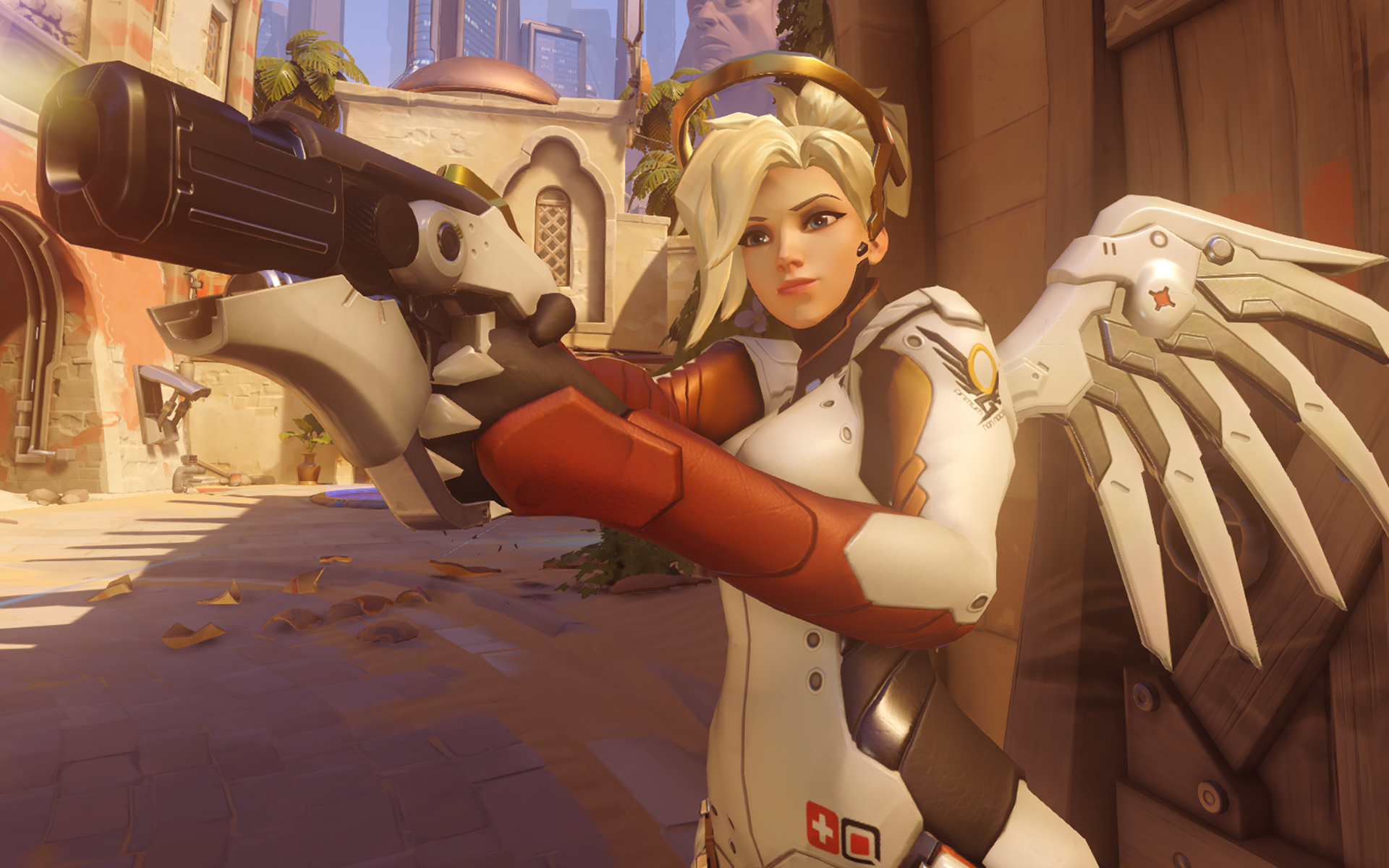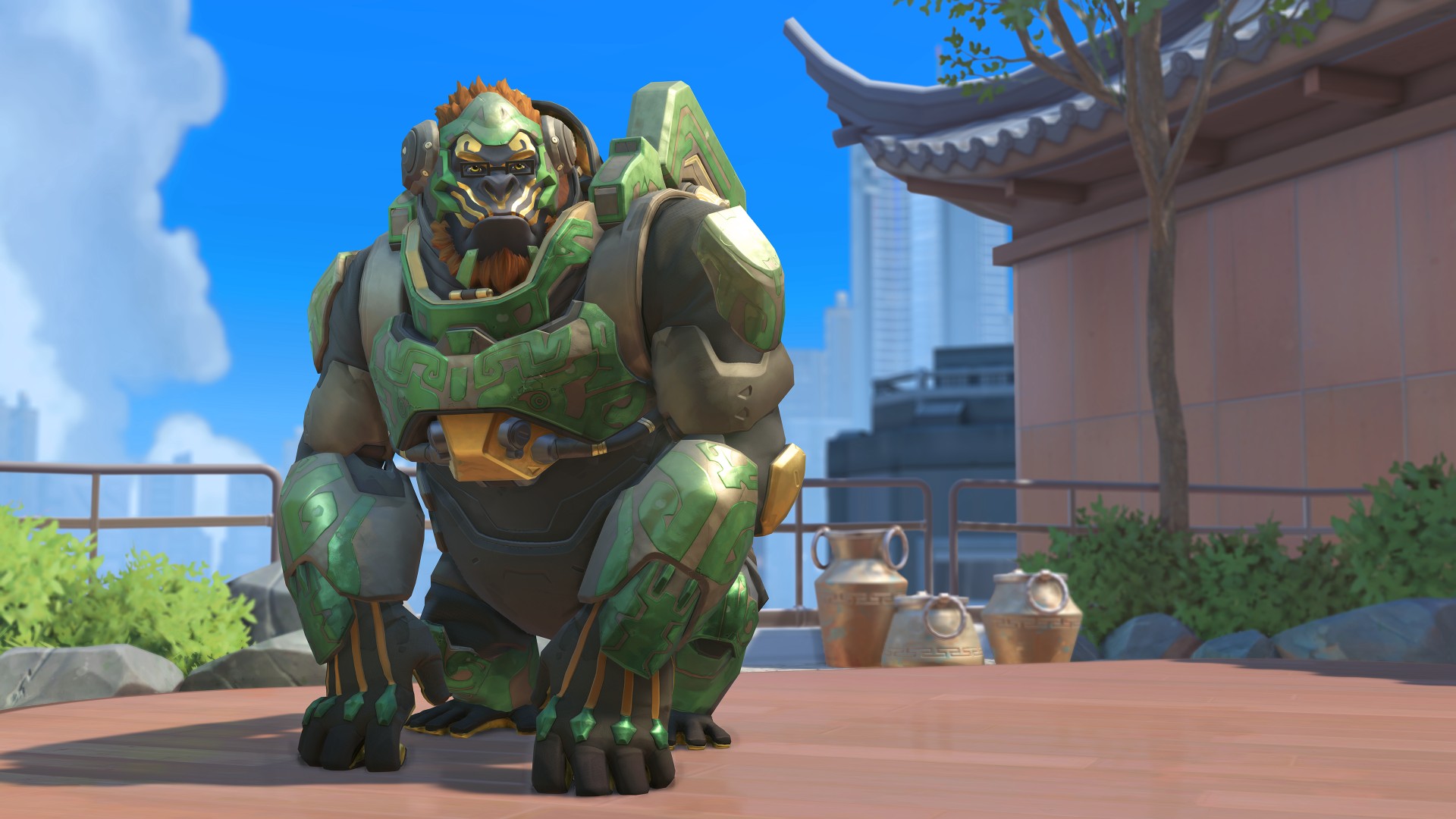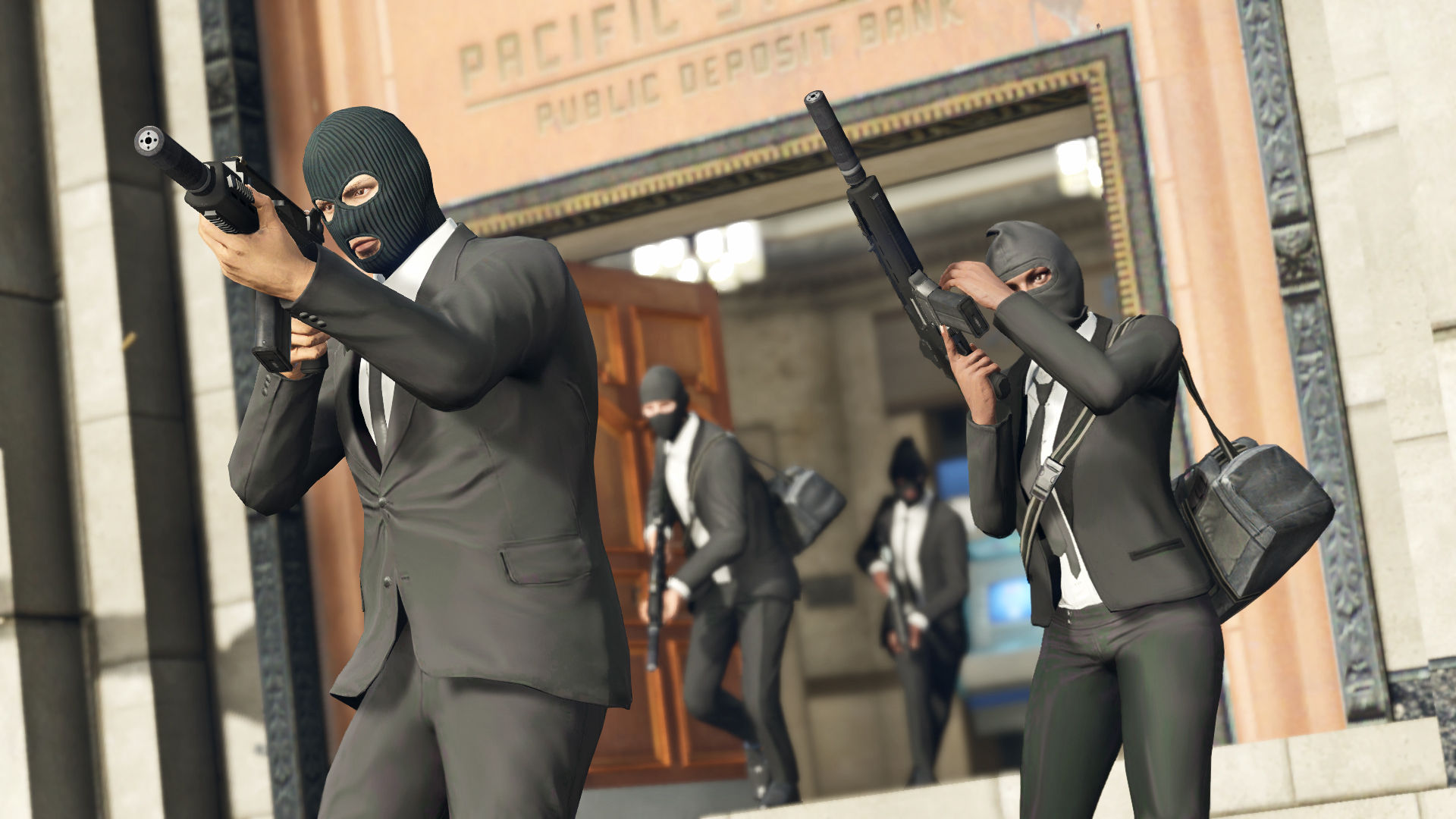Games need more roles for players with disabilities
I don't want to be a Mercy main forever.

It's a beautiful day in Ilios, minus the unending gunfire. Two groups of fighters duke it out to secure a point near the sea. Shields have been thrown up, heals slung about, and weapons discharged. Chaotic colors swarm around me, while several red names have me cornered near the edge of a building. I usually play Mercy, but this time I've convinced myself Mei's weapons will work better. I've died again, thrown off the edge by a Lucio. At least the fall gives me time to consider my mistakes and remind me why I usually stay in my lane.
I'm legally blind, meaning my vision is still worse than 20/200 after correction. I cannot lawfully drive, operate heavy machinery, join the military, or see detail in most things I view. I use magnifiers or assistive technologies while on my computer, phone, and when reading. My blindness has never diminished my desire to play videogames, but my disability has determined what games I load up and, to a greater extent, my role in them. Whether I want to admit it or not, my disability keeps me from playing the way I would like to.
Plenty of games offer characters with different abilities and let players to customize their own hero. Some of them have existing templates whose loadouts can be tweaked to fit our playstyle. These options sound great, especially if nothing stops the player from enjoying any role offered. You've got a lot of options if you can tank, heal, do damage, as well as master abilities like driving, close-quarters combat, long-range firefights, and hacking minigames. In my experience as one of the millions of Americans who are legally blind, however, such abilities aren't always possible.

I enjoy Overwatch because it's an easy game to pick up and put down in between doing other things. I never feel bad if I take a few months off, because the controls and mechanics come back quickly once the round starts. Sadly, it's hard to get excited about new characters for the roster unless they're listed as support. Mercy is the easiest for me to play because her heals auto-target a nearby ally and I've learned how to use the majority of her abilities without needing to be able to see the enemy. Though an opponent may be hidden far away, hiding out with a sniper rifle or waiting for a skill to recharge, I can focus on the blue names—the people who need me. Almost every button press accomplishes something.
The alternative is to play a damage-based character. Most are a challenge for me because they require precision aiming and being able to follow opponents. Some characters with larger guns that can spray, or who carry weapons that don't require careful aim, still require me to get up in the action more and notice incoming attacks. I did try my hand at tanking for a bit, mostly with Winston. His Tesla Cannon creates a cone of electricity, auto-targeting and damaging any foe that enters it, and his barrier creates a shield around him instead of just one direction. This might seem ideal, but accepting this role also entails keeping tabs on where all enemies and allies are, and in some game modes, spotting other objective markers on the map. I can do these other jobs, but it's a challenge, and bigger mistakes always seem to happen when I miss something.
For many players with disabilities, there can be some guilt in choosing an inaccessible class and dragging the team down.
But that's playing with randos. In GTA Online, I have a dedicated crew. We've slowed down a bit since the new content dropped, but we quickly fall back into the heists (except for The Prison Break, which I swear is the hardest one). I'm never the heist leader and rarely the main gunman. That's OK. I usually do clean-up, demolitions, or act as the getaway driver. I can't perform certain actions, like the thumbprint hacking minigame and other difficulties that require memorization. Camera placements and routes where I can't rely on the minimap—because GTA 5's HUD, GPS, and direction markers still need a lot of work—have to be perfected or done with backup.

Thankfully, the people I run with are aware of my situation and help plan around or through these issues. I'm grateful that none of them have ever considered me a liability, said that I had to be carried, or felt that a heist couldn't be finished with me on the team. I may need to stay back a bit, might never be the frontman, but I do my part and get my cut.
Keep up to date with the most important stories and the best deals, as picked by the PC Gamer team.
The other game I play with a large group is World of Warcraft. I used to be in a guild that raided and, again, I felt like part of the team. Similar to Overwatch, my ability to tank and DPS are hindered by spotting targets, noticing fleeing enemies, avoiding traps, and not standing in those green circles everyone jokes about being buffs. I always play healers, mostly my Paladin or Druid, so I can focus on my HealBot addon. I'm not the best healer, but it's the role I can keep up in. With my Mage or Hunter, I manage some OK numbers, but I always miss something, or trap/polymorph the wrong target. If I pick another role, the raid is weaker, and I don't want to do that to others. For many players with disabilities, there can be some guilt in choosing an inaccessible class and dragging the team down.
Accessibility crops up when I'm playing on my own, too. I love the Borderlands series, for instance, but always have to make sure I choose a character whose special attack auto-targets the nearby enemies. I can handle Mordecai and his pet bird, Bloodwing. When Borderlands 2 came out, I wanted to be bold and play Salvador, the Gunzerker, but soon had to start over as Axton with his automated turret after I realized the previous character's special was almost useless to me at range or when fighting larger groups. Cyberpunk 2077 had me wanting to play a more melee-based fighter to help stay up close and personal, especially with those pesky Netrunners that use Overheat from a distance. However, I had trouble finding good bladed weapons in the beginning, so I switched and soon lost interest in the game.

It's a pain to have to study a game and its classes before purchasing it, not because I want to be the best, but simply to play without frustration. This is the reality for many gamers, as more than 20 percent of those who play do so with disabilities. I' pour talent points into extra health and stamina to avoid buying abilities that potentially wouldn't work well with my vision, and I often wait on newer games until I speak to someone who's played and knows my visual limitations.
Game development is hard, especially when designing multiple classes or including various loadouts for players, but increased accessibility on a mass scale is long overdue. Looking for ways to achieve this needs to be a priority of all game developers and the industry at large. It is worth the effort if it helps players like me feel they have more freedom and the ability to choose the type of hero they truly want to be.

